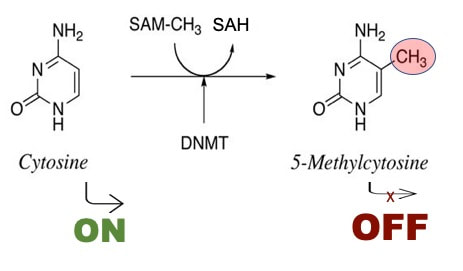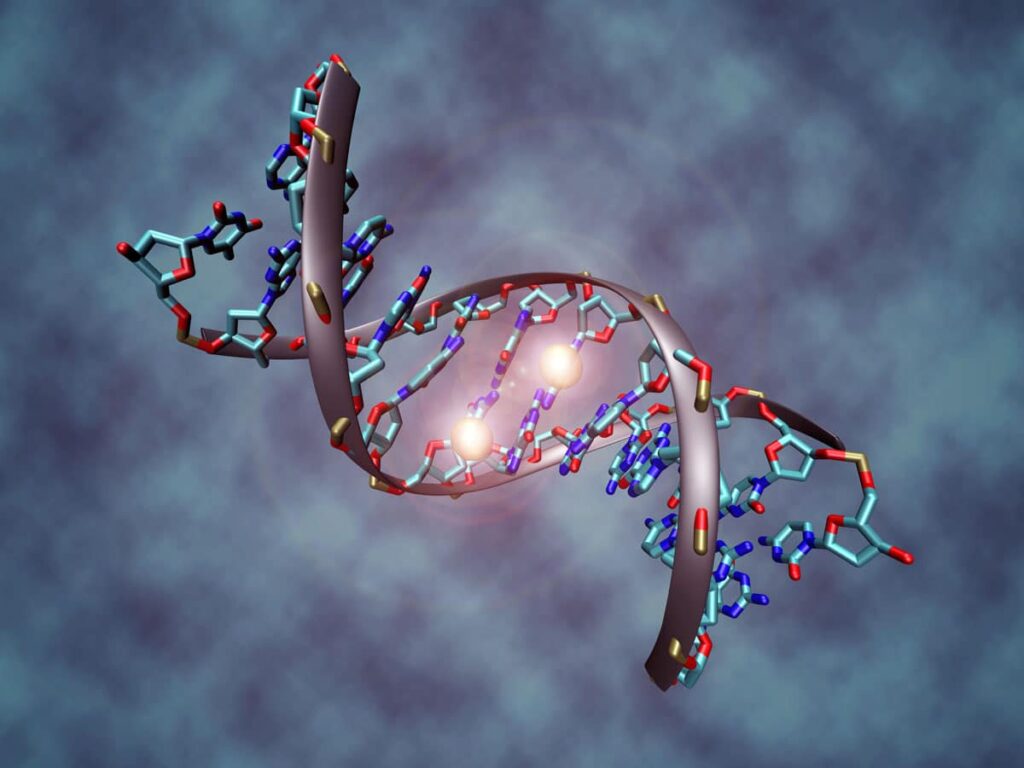DNA METHYLATION
DNA methylation a binary
code for programming DNA


THE GENOME SOFTWARE
- By measuring methylation in these genes it is possible to determine our biological age
- Our biological age is a better measure of our health and well being than chronological age.
- Studies show that acceleration of " DNA methylation age" is a predictor of early death and chronic disease.
- Experiments in an animals show that it is possible to reverse the biological clock by dietary changes.
These genomic Apps make sure that our body functions properly


Changes in DNA methylation can cause disease
Changes in DNA methylation alter the way cells and tissues operate and can convert a healthy tissue to a diseased tissue.
More than three decades ago Szyf has suggested that changes in DNA methylation would cause diseases such as cancer.
Therefore, DNA methylation is a great platform for detecting and treating disease.
Studies from the laboratory of Szyf at McGill University showed that one can reverse cancer in an animal model by blocking the protein that adds methylation groups to DNA. This has been replicated by many studies since.
More recently Szyf has shown that by examining DNA methylation in white blood cells, it is possible to detect liver cancer early.

The environment can cause changes in DNA methylation
Studies in by Jirtle and his colleagues in 2004 showed in a mouse model that maternal diet during pregnancy affects DNA methylation of her offspring and change their coat color and risk of obesity and other conditions.
Studies by Szyf, Weaver, Meaney and colleagues discovered that maternal care and behavior affects DNA methylation of her offspring and how they react to stress later in life.
These studies launched the fields of behavioral epigenetics and epigenetic psychiatry.
These discoveries provided the first evidence that both psychological and physical environments can affect DNA methylation.
DNA methylation is potentially reversible by both physical and behavioral interventions
- Studies suggest that different environmental changes can change or reverse DNA methylation events.
- Thus, the potential is there that we might be able to change DNA methylation by lifestyle changes.
- Our optimism about DNA methylation derives from the fact that DNA methylation in difference from genetics is reversible.
DNA Methylation and the Epigenetic Clock
- By measuring methylation in these genes it is possible to determine our biological age
- Our biological age is a better measure of our health and well being than chronological age.
- Studies show that acceleration of " DNA methylation age" is a predictor of early death and chronic disease.
- Experiments in an animals show that it is possible to reverse the biological clock by dietary changes.






